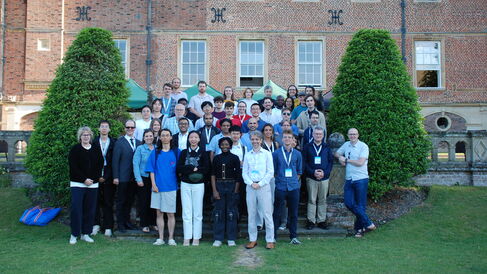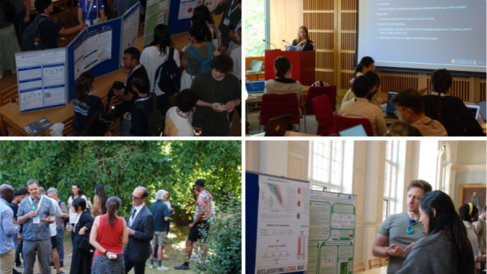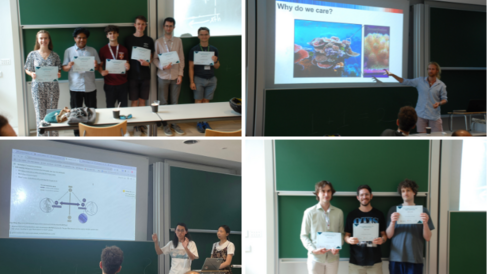
Earlier this month, the ICCS hosted its fourth annual Summer School at Newnham College, University of Cambridge. The week-long event brought together members of the Schmidt Sciences Virtual Earth System Research Institute (VESRI), other project partners, and local students for a variety of training workshops, networking opportunities, and a full-day hackathon.
The training workshops covered a wide range of technical topics, such as High Performance Computing, using AI-assisted tools in software engineering, debugging, developing Machine Learning models in PyTorch, Automatic Differentiation, and testing. We also heard from keynote speaker Professor Tamsin Edwards about her work on quantifying uncertainties in ice sheet and glacier projections for the IPCC. Recordings for all of the sessions can be found here - check them out if you get the chance!
Interspersed between the academic sessions, we also had a variety of social outings and networking opportunities. These included lunches and coffee breaks at Newnham, where we got the chance to explore the beautiful grounds. We also had formal dinners at Madingley Hall and Sidney Sussex College, and got to experience the city of Cambridge through an excellent walking tour. Participants also had the chance to share their own research over wine and cheese at our poster session.

The week closed out with a hackathon in the Center for Mathematical Sciences on Friday, where participants formed into small teams to work together coding a project of their choice. The day concluded with presentations of what was achieved, covering topics such as classification of forest disturbances, predicting coral bleaching, cross-hardware portability of numerical weather code, data assimilation into an ML surrogate model across multiple programming languages, and Earth System Model evaluation. The hackathon was a great opportunity for participants to get hands-on interaction with some of the ICCS projects and explore new ideas. After much deliberation, the project Create MCP tool for debugging crashing programs was chosen as the winner, with team members Tom Meltzer, Jay Torry, and Mikolaj Kowalski.

Overall, the summer school was a resounding success. It brought together software engineers and climate scientists from across the globe to strengthen ties and encourage future collaboration in the pursuit of advancing climate modelling. Participants left not only with a stronger skillset and a better understanding of the role of software engineering in climate modelling, but also with a new network of collaborators to work with in the future. We look forward to hosting the summer school again next year!
